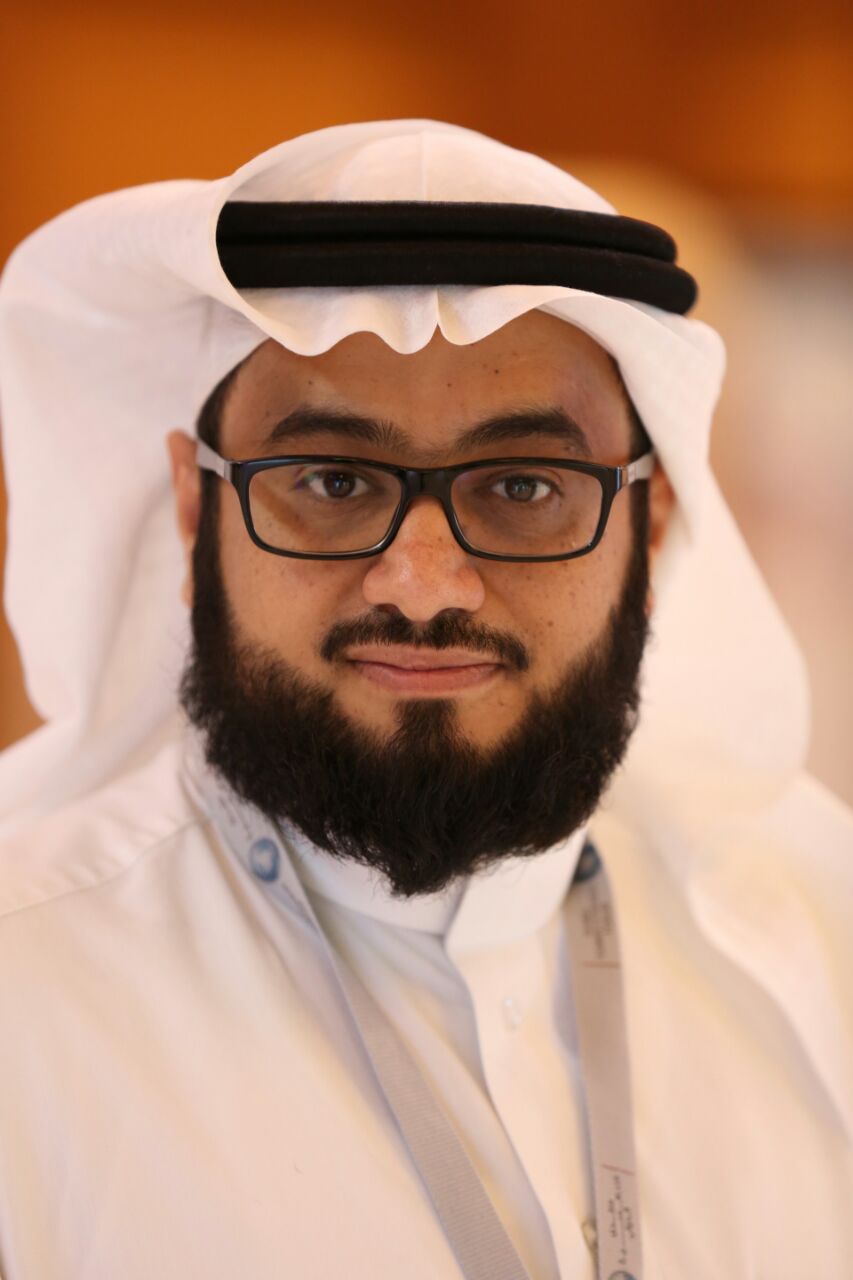
انعقاد الاجتماع الثالث لِلَّجنة التنسيقية الدائمة بمشاركة 17 جهة حكومية
To develop the statistical departments
The coordination committee is holding its third meeting with 17 governmental entities
The third meeting of the coordination committee was held on Wednesday 21/2/1440H corresponding 31/10/2018 at the General Authority for Statistics (GASTAT) head office to facilitate the exchange of data and information with various government agencies.
The official spokesman of the General Authority for Statistics (GASTAT), Taiseer Almofarrej, explained that the coordination teams discussed several topics, including the program of developing the statistical departments which aims at establishing organizational rules and fundamentals to found statistical departments in the governmental entities. Furthermore, it aims to build an official statistical system and to make the statistics, information, and indicators basic parts of the governmental work to enhance the quality of statistical work in Saudi Arabia. The mechanism of classifying government statistical units was also discussed in the meeting. Moreover, the committee reviewed the statistical works carried out during the last period.
On the other hand, Almofarrej said that the coordination committee of the General Authority for Statistics includes a number of representatives including the Saudi Arabian Monetary Agency , General Authority for Investment, Ministry of Health, Ministry of Environment, Water and Agriculture, Saudi Customs, Ministry of Housing, Ministry of Trade and Investment, Ministry of Education, Ministry of Justice, Ministry of Municipal and Rural Affairs, Ministry of Finance, Ministry of Energy, Industry and Mineral Resources, Ministry of Communications and Information Technology, Ministry of Labor and Social Development, National Information Center, Ministry of Economy and Planning, and Saudi Post.
It is worth mentioning that the coordination committee was formed permanently to coordinate the statistical work between the General Authority for Statistics and related entities, in accordance with the Ministers Cabinet resolution number (11) dated 13/1/1437 H of the authority organization, which aimed at activating and organizing the statistical work through the establishment of a comprehensive, accurate and unified statistical system, in addition to the follow-up of its implementation. It also develops the plans and programs necessary for fulfilling statistical needs; in order to serve the developmental plans, scientific research, and other activities.
GASTAT: Real-Estate Prices Index Decreased During Q3, 2018
The index includes housing, commercial and agricultural sectors
GASTAT: Real-Estate Prices Index Decreased During Q3, 2018
The General Authority for Statistics (GASTAT) released the report of Real Estate Price index for the third quarter, 2018 on the official website of the Authority www.stats.gov.sa
The real-estate price index has recorded a decline by (1.6%), compared to the previous quarter Q2 2018, where the indicator of the real estate price index reached (82.3) in the third quarter of 2018, compared to (83.6) in the second quarter of 2018. This decline can be attributed to the decrease in the main sectors composing the indicator: the housing sector (2.1%), the commercial sector (0.5%), and the agricultural sector (0.1%) compared to the second quarter of the current year.
At the level of the housing sector, the third quarter of 2018 witnessed a decline in residential lands by (2.1%), compared to the previous quarter, where the villas, apartments and houses decreased by (1.4%), (2.0%), and (0.3%) respectively. On the other hand, residential buildings increased by (0.2%). Regarding the commercial sector, commercial plots decreased by (0.5%), compared to the previous quarter. However, the agricultural sector witnessed a decrease by (0.1%) in agricultural lands.
Additionally, the index is based on the data records about real-estate’s transactions available at the Ministry of Justice, and it is an important tool to support economic and statistical decision makers regarding the changes of property prices and future forecasts during different periods of time. The index has three main sectors consisting of several types of real estate: housing sector which includes the following (plot of land, building, villa, apartment and house), commercial sector includes (plot of land, building, exhibition/ shop or commercial center), and the agricultural sector with only one category which is the agricultural land.
It is worth mentioning that the real estate price index aims at finding accurate real estate statistical indicators that measure real estate market in Saudi Arabia according to universally recognized scientific norms and standards, and filling the gap of data in real estate sector. It is considered an essential tool to support entities which make economic decisions in this field, and to contribute to a development process in the real estate sector in order to achieve the vision of 2030.
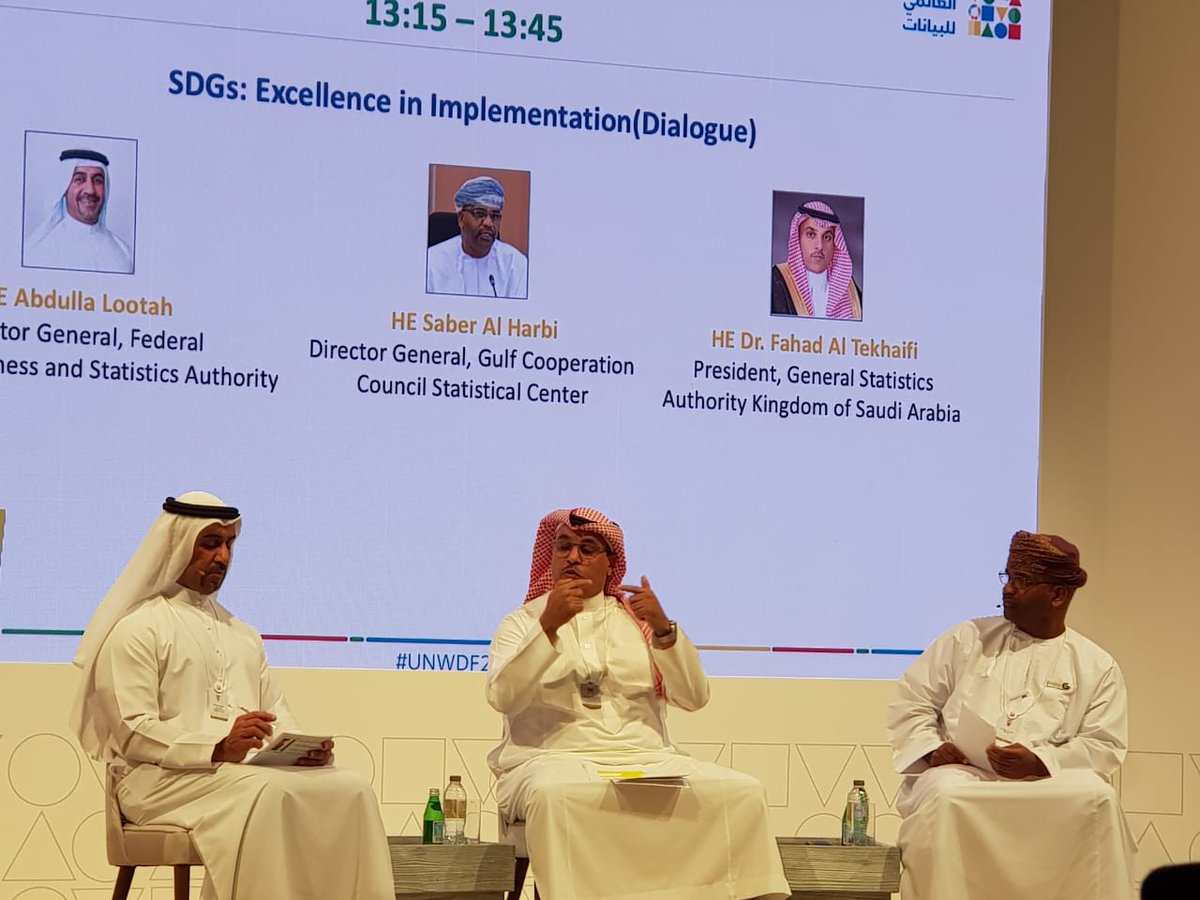
التخيفي: المملكة تسعى لتكون من أوائل الدول عالميًا في تحقيق أهداف التنمية المستدامة من خلال بناء مؤشرات إحصائية وتطوير سياسات تنموية
During the Second UN World Data Forum
Al Tekhaifi: Saudi Arabia seeks to be one of the first countries in the world to achieve the Sustainable Development Goals through building statistical indicators and creating development policies
The General Authority for Statistics (GASTAT) concluded its participation in the second United Nations Data Forum hosted by the United Arab Emirates from 22 - 24 October 2018, under the patronage of H.H. Shaikh Mohammed bin Rashid Al Maktoum, the Vice President and Prime Minister of the United Arab Emirates and the Ruler of Dubai. The forum was held with the participation of a group of leaders, decision-makers and more than 2500 experts and specialists in the field of data from more than 120 countries in the world.
H.E. Dr Fahad Al Tekhaifi, the President of the General Authority for Statistics, congratulated the Federal Competitiveness and Statistics Authority in the United Arab Emirates on the success of hosting this international statistical event. He praised the achievement of the session’s goals through the wide participation of the countries, organizations, government systems, and research and academic society. Al Tekhaifi stressed that the participation of GASTAT in the UN World Data Forum of 2018 – which is held for the first time in the Gulf region in Dubai – comes within GASTAT plan to benefit from the best international practices in the data field, communicate with the international organizations and strengthen the partnerships with them. In addition, the topics of the forum are one the important topics for all statistics systems especially in view of the transformation in the region from depending on gas and oil to an economy based on diversity for a sustainable development. The three-day forum discussed the exploitation of the information revolution for a sustainable development. Moreover, the forum discussed improving the use of data and statistics to achieve change towards a better future for human societies in line with the Sustainable development goals 2030.
GASTAT president pointed that Saudi Arabia presented its first voluntary national report at the high-level political forum concerned with the sustainable development last July at the UN headquarters in New York despite it being voluntary, believing in the importance of pioneering in sustainable development for the national, regional and global transformation. Saudi Arabia has made rapid progress in achieving the goals of sustainable development, which confirms the keenness of the leadership on this, led by the Custodian of the Two Holy Mosques King Salman Bin Abdul Aziz Al Saud, His Royal Highness Prince Mohammed bin Salman bin Abdulaziz, Crown Prince, Deputy Prime Minister and Minister of Defense. Saudi Arabia as a member of the United Nations General Assembly seeks to be one of the first countries to achieve the Sustainable Development Goals. Since the adoption of the goals, Saudi Arabia developed work mechanisms to ensure that the Sustainable Development Goals are aligned with the 2030 Saudi Vision as well as other national strategies and programs. Saudi Arabia developed a clear governance for the responsibilities and roles assigned to all relevant government sectors. GASTAT is considered the official body for building the indicators of sustainable development in Saudi Arabia.
Al Tekhaifi explained through his participation in one of the forum sessions that Saudi Arabia dealt with the sustainable development as goals and indicators in an effective way through three parallel tracks (Legislative, coordination, and technical). In the legislative track, a Royal Decree was issued assigning His Excellency the Minister of economy and Planning, the Chairman of the Board of Directors in GASTAT, to follow-up the profile of sustainable development goals beyond 2015. In addition, the Ministers cabinet approved the organization of GASTAT as the only official reference to implement the statistical work in all fields, as well as the entity responsible of producing statistical data and information at the national and international level. In the coordination track, a number of Statistics’ coordination committees have been formed with the participation of relevant government entities in different social, economic and environmental fields. In the technical track, GASTAT works with the participation of government entities on the national statistical data program “Masdar” which is a program that aims to to build a comprehensive national statistical database in which all statistical data from various internal and external sources are gathered to produce the categories, indicators and analyses needed by data users and analysts inside and outside the GASTAT to use it as a statistical reference to support decision making and the development of various development plans.
It is worth mentioning that the UN World Data Forum is a global platform for official statistics, and a collaborative environment for research and development of this area, using working models of global task forces for a number of statistical projects, in partnership with technology companies, data providers and academia in order to invest the digital data as inputs in the production of a reliable statistics, and make it available to serve the community in various fields.
GASTAT: More than 278 thousand prayers,107 thousand circumambulations of the Kaaba every hour and 42 scientific study and research to support the development
More than 10,000 Employees Provide Services in the Two Holy Mosques for the Guests of Allah
GASTAT: More than 278 thousand prayers,107 thousand circumambulations of the Kaaba every hour and 42 scientific study and research to support the development
On Saturday, 7th of Dhul Hijja 1439H. ,In the Hajj statistical calendar, GASTAT released the number of prayers and Kaaba circumambulations in the Holy Mosque of Makkah by hour. The number of prayers in the Holy Mosque of Makkah exceeded 278,000 in every hour, whereas the number of circumambulations of Kaaba exceeded 107,000 in every hour. In the Hajj season, these people are served by more than 10,000 employees from the General Presidency for Two Holy Mosques Affairs around the clock. The employees are supported by 54,501 machinery and equipment to provide cooled Zamzam water in locations near prayers, Hajj and Umrah performers inside the two holy mosques and the holy places.
In addition, 2000 tons of Zamzam water is pumped in the Holy Mosque of Makkah, 300 tons in the Prophet’s Mosque in Madinah on a daily basis. Moreover, the General Presidency for Two Holy Mosques Affairs prepares 25,000 (Zamzam thermoses), which are filled daily and around the clock to facilitate the prayers and pilgrims drinking process. Furthermore, the Presidency provides multiple types of carts for people with special needs for free. It provided more than 13,650 carts, including 700 electric carts. The various work teams in the presidency provide comfort for pilgrims to perform their tasks easily and supervises the performance of the imams (leaders in prayers) and Muazzins who call to prayers. 20 Muazzins call for prayers, and 10 imams lead prayers alternately. Their speeches are organized, recorded in tapes and CDs, and indexed. In addition, the work progress is monitored inside the organization and its units to ensure that the regulations and procedures are adopted in a comprehensive manner, and to contribute to the guidance and counselling as well as providing Tawaf services (circumambulations of Kaaba) for men and women, where there are more than 123 guides in the areas of the Holy Mosque.
The Presidency takes care of the mosque areas, provide the Holy Quran, translate and transmit the meanings of the Holy Quran into the languages of: (English, French, Urdu and Malay), and work on the safety of the people visiting the mosque as well as the people who serves the visitors. In addition, it supervises the cleanliness of the two holy mosques and their care around the clock, guards the doors of the Two Holy mosques and organises its opening, follows up the manufacturing stages of the Kaaba covering by supervising the King Abdulaziz organization of Kaaba covering, contributes to the safety and comfort of the Holy Mosque visitors in cooperation with the security authorities and the departments working in the Holy Mosques. Moreover, the presidency monitors the crowded places and follows up the observations concerning the crowds in all sites of the Holy mosque.
On the other hand, The Institute of Hajj and Umrah Research provides (42) research and scientific studies in order to develop an integrated and sustainable system for Hajj, Umrah and visiting. The institute tasks focus on conducting scientific studies and research that aims at facilitating the performance of rituals and providing better services to pilgrims and visitors of the Two Holy Mosque. This is done through studying the current conditions, collecting detailed data and information about various aspects of Hajj and Umrah and visiting, the needs and requirements of pilgrims, Umrah performers and visitors and the services and facilities provided to them, in order to obtain a clear picture of the prevailing situation, and then to develop its pros and overcome the disadvantages. The most prominent research and studies that the institute works on this year (1439H.) are: an analytical study for the periods of the procedural stages that the pilgrim faces since his/her arrival to the air-port until arriving to his/her residence, simulation of the Tawaaf System, demographic statistics on pilgrims and Hajj performers for the year 1439H., interactive touch screen technology in awareness and guidance during Hajj, the role of the public relations’ publications in health education for pilgrims of different nationalities, The role of the Saudi embassies in educating guests in the Holy Mosque for the year 1439H, evaluating the health environment of the prayers in the Holy Mosque (1439H), various means of transportation between the holy, the monitoring of the religious guidance locations in the Holy Mosque and the Prophet's Mosque and its role in the religious awareness of the Umrah pilgrims, the media inspection of the awareness publications provided to the pilgrims and its impact on their religious and behavioural awareness, and the role of embassies in raising the awareness of the guests with the lawful behaviours.
The Hajj statistical Calendar (1439H), issued by GASTAT, contains details of these statistics, according to the entities, and can be found on its official website www.stats.gov.sa
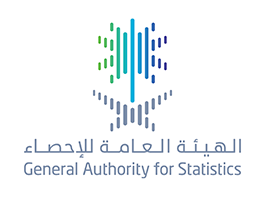
الهيئة العامة للإحصاء تصدر نتائج مسح المال والتأمين 2017م
With total operating revenues of 162 billion SAR
GASTAT Releases the Results of the Finance and Insurance Survey 2017
The General Authority for Statistics (GASTAT) released the results of " Finance and Insurance Survey (2017) " , which conducted annually by the Authority, on its official website www.stats.gov.sa . This survey is an important source for presenting and analyzing the economic data of finance and insurance establishments, such as employees, compensations paid to them, other expenses, revenues and capital formations.
The survey results showed that the number of establishments engaged in the finance and insurance activity increased by 1.14% in 2017, compared to the previous year 2016. However, the total number of establishments engaged in the finance and insurance activities amounted to 6,664 establishments distributed among 14 sub-activities. The sub-activities include banking and holding companies, financial leasing, other loan- granting forms, insurance, financial market management, securities contracts, insurance agents and brokers, money management as well as other activities.
Furthermore, finance and insurance survey results revealed that the total number of employees in this sector reached 113,728 employees, where 82,308 of them are Saudi employees and 31,420 are Non-Saudi employees. Therefore, the number of Saudi employees in finance and insurance establishments increased by 3.32% during 2017 compared to the previous year 2016.
According to the finance and insurance survey results, the total amount paid to finance and insurance establishment's employees for wages, benefits and allowances made up 22 billion and 920 million SAR during 2017.
Additionally, the results of the survey indicated that the operating revenues of the establishments engaged in the finance and insurance activity increased during 2017 by 10.3%, compared to the last year 2016. It should be noted that the total number of revenues reached about 162 billion SAR, while the total number of operating expenses of these establishments was approximately 47 billion and 312 million SAR in the year of 2017.
The finance and insurance survey was conducted based on an evident methodology according to the international standards. The methodology is to study the establishments that carry out their main operations in finance and insurance field in private and public sectors.
It is worth mentioning that the finance and insurance survey is important in providing detailed data on finance and insurance activity at the level of Saudi Arabia. These data contribute to measuring the participation of this activity in the economic development process, in addition to providing the basic data necessary for preparing and composing national accounts.
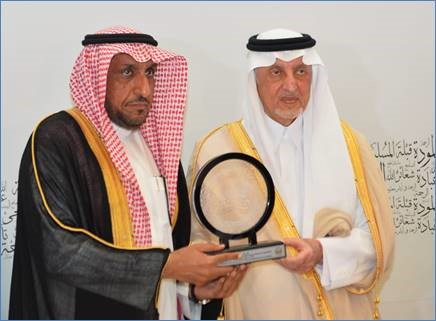
مستشار خادم الحرمين الشريفين يكرم الهيئة ضمن شركاء النجاح
The Advisor of the Custodian of the Two Holly Mosques Honors GASTAT as One of the Success Partners
The Advisor of the Custodian of the Two Holy Mosques, Prince of Makkah Region, Chairman of the Central Hajj Committee, Prince Khaled Al-Faisal has honored the General Authority for Statistic (GASTAT) as one of the (success partners) for the Hajj campaign " Pilgrimage is Cult and Civilizational Behavior 11", under the slogan " Hajj is a message of peace "headed by, Mr. Fahd Al-Fuhaid GASTAT deputy of operations and methodologies.
This was during the inauguration of His Highness the Hajj campaign in Jeddah Emirate, with the participation of 30 entities representing the public and private sectors. Additionally, the Hajj campaign "Pilgrimage is Cult and Civilizational Behavior 11" works on the implementation of its plan in the current season in order to provide peace among pilgrims through four stages.
It is worth mentioning that GASTA works during Hajj Season on the enumeration process of pilgrims coming from inside Saudi Arabia through many statistical centers located over Makkah, Madinah and Jeddah ports, in order to provide statistical data that contribute in supporting decision and policy makers to support development plans.
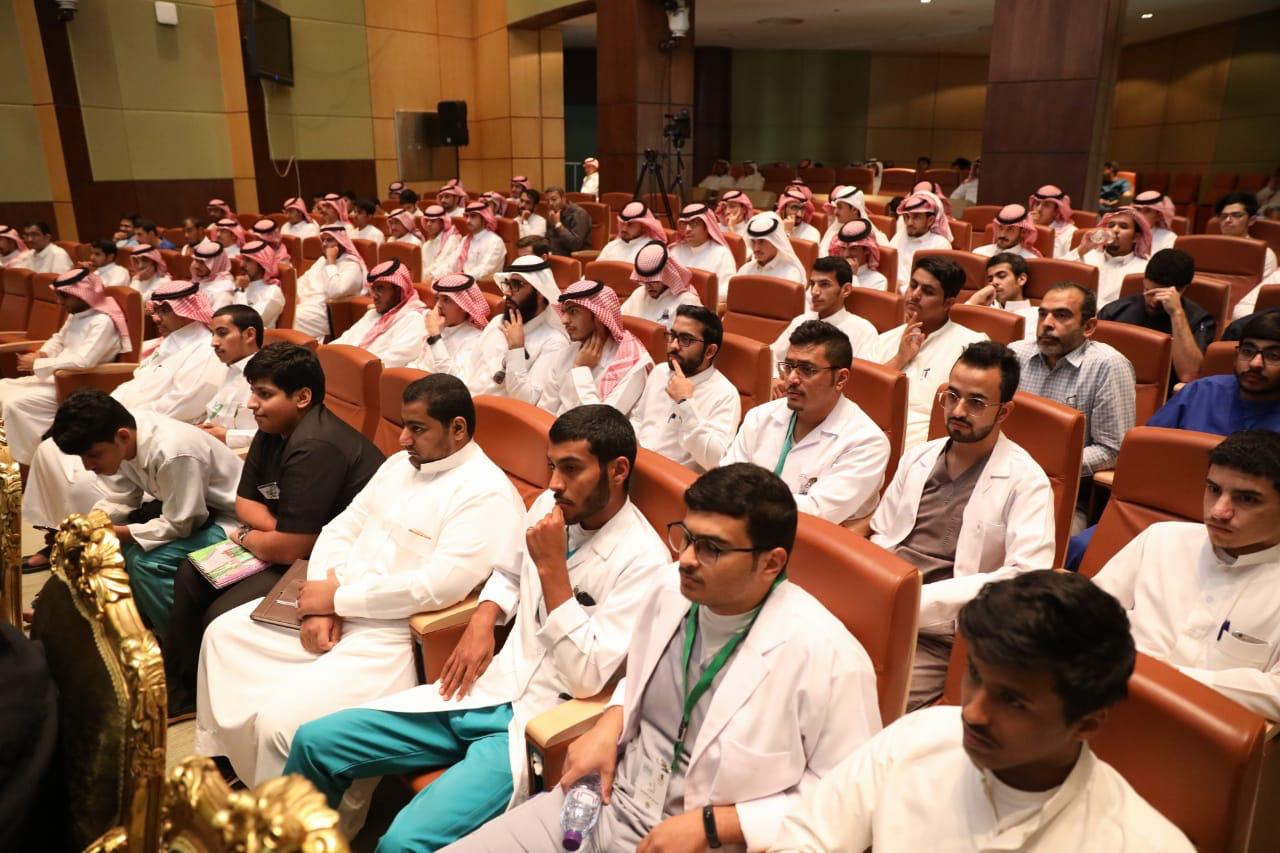
الهيئة العامة للإحصاء تختتم أسبوعها التوعوي لطلاب منطقة الجوف
More than 130 statistical products to support studies and research in the academic sector
GASTAT concludes its awareness week in Al-Jawf region
The General Authority for Statistics (GASTAT) stated that more than 130 statistical products are available for university students, faculty members, and researchers in the economic, social, environmental, cultural, humanitarian, demographic, and agricultural fields. These products will be available on GASTAT official website www.stats.gov.sa with open access, so that they may support the research activity in the Saudi academic sector.
During a lecture that was held on Thursday, Muharram 24, 1440H in Al-Jawf university, GASTAT spokesman, Taiseer Almofarrej said that GASTAT gave researchers, university students, and faculty members an attention by considering them clients who receive services for the purpose of supporting academic activity, as this activity is considered an important component of the statistical sector.
Almofarrej added, the university student has a significant role in raising awareness and interacting positively with statistics which represents the main concern of researchers and academics. Furthermore, the university student can disseminate knowledge among households and society in general, especially when speaking about his/her role in supporting statistical works that target households, as providing accurate and comprehensive data by the household head is an important step of the statistical process that supports developmental plans and programs.
Meeting the university students and faculty members was the last event in the awareness week of GASTAT in Al-Jawf region which was held during the period 20-24 Muharram, 1440H (30 September- 4 October 2018). It is worth mentioning that this awareness week is one of the many statistical awareness programs that GASTAT conducts to raise awareness among all society classes. However, during this week, Al-Jawf university hosted the event of (We share you your academic journey) which targets university students, faculty members, and all university staff. This event presents GASTAT statistical products and services, and explains how to use them to conduct academic studies and research.
On the other hand, more than 560 students representing 70 elementary and intermediate schools visited the “Smart statistician” exhibition which was held in Skaka. The exhibition was organized by GASTAT in cooperation with the General Administration of Education in Al-Jawf region. It aims at clarifying the role of statistics in the life of students, in addition to explaining the statistical concepts and raising the level of students’ awareness. Moreover, it presents the statistical process steps and stages in a simple and scientific way, and enhances the student’s realization of the statistician role. However, the exhibition demonstrates the impact of data accuracy (data provided by the household head) on development, as the student is considered an effective method in raising households’ awareness. The awareness week also included an interactive lecture that was held in Domat Al-Jandal governorate and attended by more than 200 students from different schools.
It is noteworthy that GASTAT, in cooperation with different departments of education, works hardly to educate students with the impact of statistics on development, in addition to the impact of student- either school students or university students- on raising his/her household awareness to provide GASTAT with required data and information over the year.

الهيئة العامة للإحصاء تُجْرِي 9 مسوح ميدانية تستمر حتى مطلع ربيع الثاني1440هـ
Targeting 190,000 households and 40,000 Establishments
GASTAT Conducts 9 Field Surveys that Continue Until the Beginning Of Rabi’ Al-Thani 1440H.
The General Authority for Statistics (GASTAT) called upon all citizens and residents, as individuals or in corporations, to cooperate with the statisticians working in the field in various regions of the Kingdom of Saudi Arabia, who their statistical work will continue until the beginning of Rabi’ Al-Thani 1440H. GASTAT asserted that all information and data will be treated as an information basis which is reliable and can be used by development decision-makers in all relevant government entities that will serve the interest of citizens and residents.
GASTAT spokesman, Mr. Taiseer Almofarrej said that about 3437 statisticians are conducting 9 social and economic field surveys during this period and until the beginning of Rabi’ Al-Thani 1440H. These surveys target about 190,000 households and 40,000 establishments in all (13) administrative regions, including cities and governorate. The results of these surveys are one of the most important pillars when taking decisions that are relevant. The households will be visited in the areas designated to conduct the Household Heath Survey, Food and Drugs Survey, Non-profit Sector Survey (Household), Labor Force Survey, Umrah Survey, estimate of Makkah pilgrims survey, Household Culture and Entertainment Survey, Use of Time Survey and household Economic Survey.
He added that the Household Health Survey for the fourth quarter of 2018 aims to provide data to help health planners to develop, update and follow up the implementation of some health policies and strategies. In addition, it provides data enabling decision makers and health policy makers to conduct regional and international comparisons to develop the health field in Saudi Arabia to Standards, as well as creating a database that can be used as a reliable basis in providing local, regional and international organizations with health information and indicators. Furthermore, it provides accurate data to help monitor the implementation of and assess the impact of certain health programs, such as, programs related to chronic diseases, lifestyles and child mortality, as well as provide accurate data that help identify the disadvantaged groups, and thus contribute to targeting these categories with relevant strategic health initiatives and programs.
In the field of economic statistical surveys, the official spokesman of GASTAT said that the surveys will be conducted on the non-profit sector (households and establishments) in order to identify the size of this sector in reality and its contribution to the Saudi National Product. In addition, it measures the contribution of the community members in volunteer work, and aims at measuring the perceptions of the community members for the role of voluntary organizations and their final outputs in supporting development plans, and supporting decision makers and planners in the process of maximizing the outputs of the non-profit activity helping in achieving the Saudi Arabia’s 2030 Vision seeking to increase the contribution of the charitable sector to the GDP and to increase the number of volunteers.
The Food and Drug Survey aims at identifying data on the quality of medicines in houses, in addition to providing data on the storage and disposal of medicines, as well as the extraction of health indicators of the drugs to meet the local, regional and international requirements in this field. All these field surveys aims at providing accurate and detailed data that helps to know the growth rates of the economic and social activities in Saudi Arabia.
On the other hand, Almofarrej clarified that the general statistics system issued by the ministers’ cabinet, states that all data and information provided by any citizen, resident, or establishment are kept and dealt with confidentiality. He added that the people’s cooperation with statisticians would guarantee the success of these works, and using them in supporting economic and social development accordingly.
It is worth mentioning that GASTAT carries out a large number of field surveys throughout the year, following the international standards adopted in the selection of the sample for these statistical works. It is required that the sample is representative of the society studied and include its characteristics, so that the results are circulated as official statistics. GASTAT immediately publish the surveys after the completion through its official website www.stats.gov.sa
